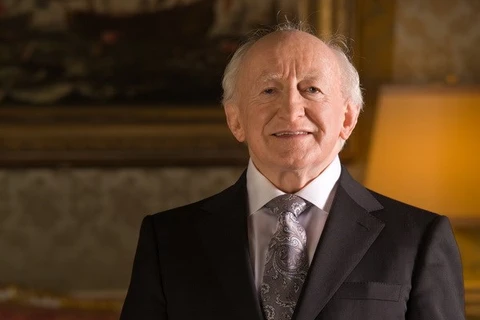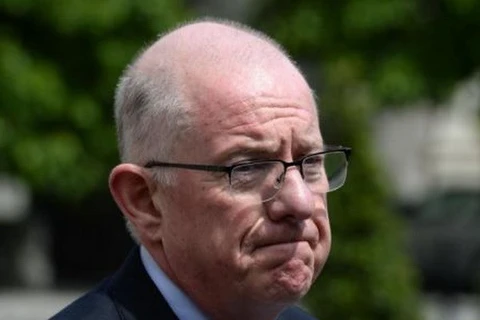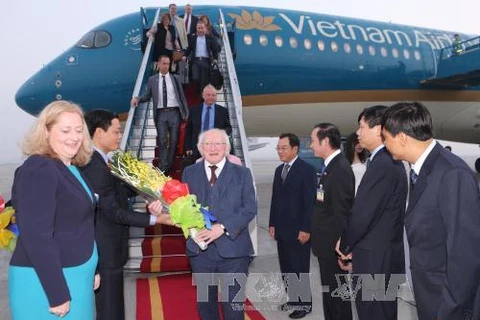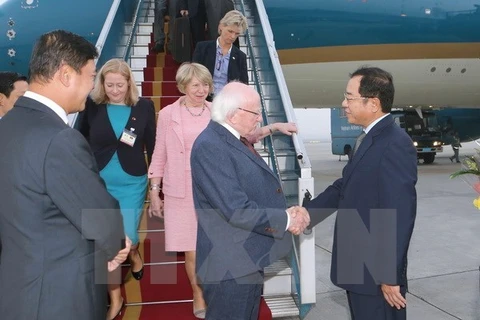 Irish President Michael D. Higgins (R) and President Tran Dai Quang review the guard of honour in Hanoi on Novenber 7 morning (Photo: VNA)
Irish President Michael D. Higgins (R) and President Tran Dai Quang review the guard of honour in Hanoi on Novenber 7 morning (Photo: VNA) Hanoi (VNA) – Irish President Michael D. Higgins expressed his wish to foster cooperation with Vietnam, which he described as a country of increasingly important role in Asia-Pacific, during talks with President Tran Dai Quang in Hanoi on November 7.
President Quang hailed the first Vietnam visit by President Michael D. Higgins, which is concurrent with the 20th anniversary of bilateral diplomatic ties, saying that he believes the visit will generate a new momentum for bilateral friendship and cooperation.
Both leaders pledged to boost ties across trade-investment, education-training, green technology, renewable energy, agriculture, health care, and sustainable development, as well as facilitate visits at all levels.
On economic front, they promised to offer all possible support to businesses to enhance their links and transfer technology, especially in the fields of renewable energy, agriculture and food processing, communications, health care and aviation, given the signing of the EU-Vietnam free trade agreement.
Regarding education – training, a focus of bilateral partnership, they vowed to encourage tertiary establishments to form partnerships.
The host thanked the Irish government for considering Vietnam a priority partner in its development cooperation policy, adding that Irish-funded projects have contributed to Vietnam’s socio-economic development and global integration.
Ireland will soon announce a national strategy on development cooperation with Vietnam for 2017-2020 and continue supporting the Southeast Asian country in poverty reduction, response to climate change and implementation of the UN Sustainable Development Goals, Higgins said.
Both sides also committed to promoting cultural-art exchanges and upholding the bridge role of Vietnamese community in Ireland.
Highlighting the significance of maintaining global peace, security and development cooperation, they agreed to continue working closely together at international forums such as the United Nations, ASEAN-Europe Meeting and the ASEAN-EU cooperation framework to deal with global issues, including climate change and the implementation of the UN Sustainable Development Goals.
Regarding the East Sea issue, the two leaders agreed to settle disputes at the sea by peaceful measures in line with international law, especially the 1982 UN Convention on the Law of the Sea (UNCLOS).
Following the talks, host and guest witnessed the signing of cooperation agreements in the fields of development cooperation, education-training, wind power, information technology, post and telecommunications, and medical equipment.
At the press conference later, they expressed wish to boost the friendship and all-around collaboration between the two countries in the foreseeable future.-VNA
























